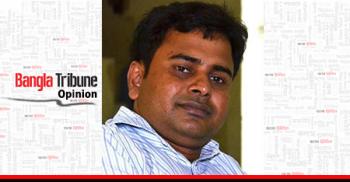 In the World Environmental Day 2018, the international community (UN) has selected the theme ‘Beating Plastic Pollution’. It means people around the world must learn how to control the use of the plastic either reuse it as much as possible or reject it.
In the World Environmental Day 2018, the international community (UN) has selected the theme ‘Beating Plastic Pollution’. It means people around the world must learn how to control the use of the plastic either reuse it as much as possible or reject it.
The United Nations at the eve of the June 5 set a theme for the pressing problem of the humanity for encouraging worldwide awareness and action for the protection of our environment. Since the beginning in 1974, more than 100 countries celebrate the day as a platform to sensitise the people about our motherly earth.
In 2018, the world community has realised to present the epidemic effects of the ‘plastic’ for the environment, ecology and human health. Thus, the UN has set the theme ‘Beating Plastic Pollution’.
But the question is why the plastic has become a source of the epidemic problem for our entire world. The following statistics will encourage the people to rethink the use of the plastic:
- Every year the world use 500 billion plastic bags
- In the last decade, we produced more plastic bags than the last century
- Fifty percent of the plastic bags we use are single-use
- We buy 1 million plastic bags every minute
- Every year we use 17 million barrels of oil to produce plastic water bottles
- Every year we throw away 13 million tonnes of plastic into the ocean
- Plastic can survive up to 500 years in the earth
Research and science have explored hundreds of information about the good and bad things about plastic. In every corner of the world, plastic usage in different forms (i.e. bag, bottle, spoon, cup, plate, business and medical use) is increasing due to business, commercial and individual need.
In our activities such as party, journey, shopping, recreation, business, promotional and medical use, we are now heavily depended on plastic products. Thus, the international community has been very much concerned about the multi-dimensional effects of the plastic on earth, animals, flora and fauna and humanity.
In the developed world, educational institutions, community and charity foundations work to educate people about the detrimental impacts of using plastic products. In Australia, I see people coming to the supermarket with used plastic bags. This is not only for saving the money but for reuse it considering the effects of the plastic.
How far we are ready in Bangladesh
Using plastic (bag, bottle, spoon, mug, box, plate, and business and medical instruments) materials is a growing need in Bangladesh due to the increasing number of manufacturing industries and population demand. In every household and industrial need, plastic goods are now part and parcel of life. However, Bangladesh is the leading county to ban the use of plastic. The growing necessity of the plastic in the daily life has questioned the decision of the government to ban the plastic. In the market economy, the value of the goods is determined by its demand. In the economy of Bangladesh, plastic is contributing for earning export earning, job creation and accessible use. But use of plastic is extremely detrimental for the country like Bangladesh. The ignorance and lack of education about the use of plastic are complicating the devastating effects of the plastic use.
In most of the cases, we the people in Bangladesh throw away plastic products in to water bodies as well as public spaces (roads, parks etc). We dump plastic bottles anywhere, which mean we do not care for it. But we do not know how much cost the plastic will bring to our future life.
The sewerage system of Dhaka city has been clogged by the plastic wastes. Not the rivers are also marred with plastic wastes. Our ignorance has caused already severely damaged the rivers around Dhaka city.
Needless to say, plastic is the most human concerning product that we use every day. Thus, we have to learn how to reuse the plastic in our daily life in order to protect our environment and motherland. The educational institutions, media and public forum in Bangladesh need to sponsor more educative programs about the detrimental effects of the plastic as well as the possible best way of recycling and reuse of it.
The last line people should remind is “If you can’t reuse it, refuse it”.
Md Rafiqul Islam is doing his PhD at the Flinders University in Australia


